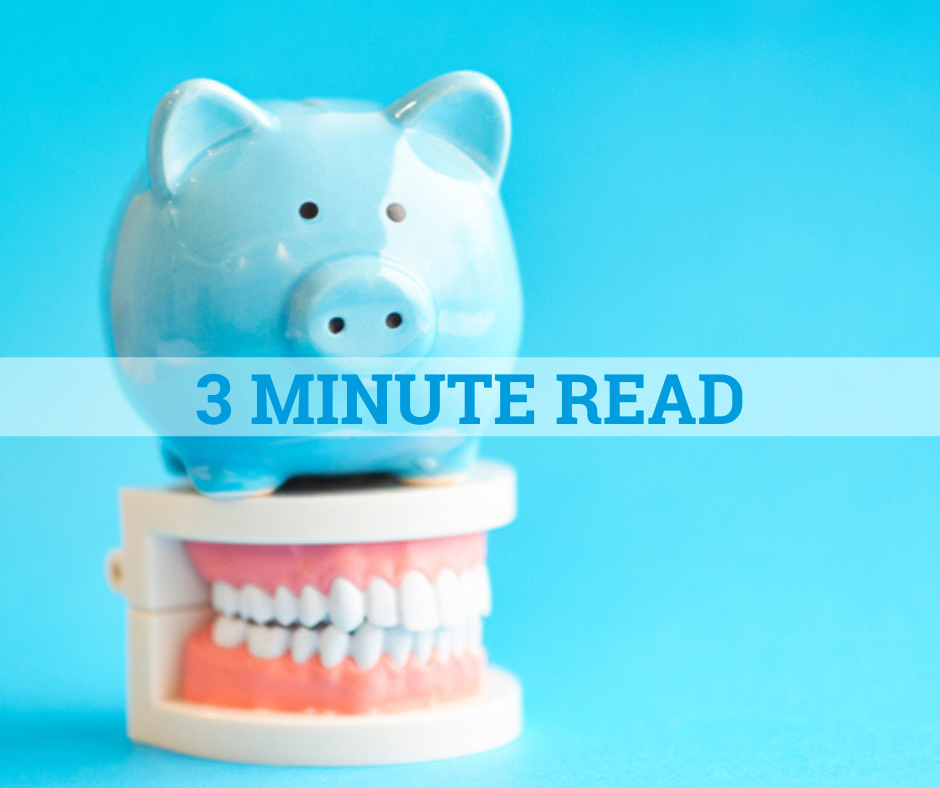
It’s no secret that health insurance is one of the most important employee benefits. Insurance is also one of the most expensive benefits, forcing small business owners to balance an attractive benefits plan with the costs of offering different medical plans.
While it can be easy to focus on group health insurance, it’s essential to remember another critical benefit – dental insurance. Let’s break down what types of dental plans employers can offer and how they can benefit your small business.
What Dental Insurance Options Are Available For Small Businesses?
There are various options for employer-sponsored dental coverage available for small businesses. These types of dental insurance plans include:
- Preferred provider organizations (PPO) – Users can visit a network of providers for dental care. Individuals will have co-payments for procedures and can meet a deductible.
- Dental health maintenance organizations (DHMO) – Users pay their dental network a set monthly fee for preventative care whether they use it or not. A set amount of annual services are covered within that fee, while others require copays or are not covered.
- Discount or savings plans – Users pay a monthly premium to receive discounts on dental services, whether they are in network or not.
How Much Does Small Business Dental Insurance Cost For Employers?
It’s no secret that offering certain benefits is an ample expense for small business owners. Group health insurance alone can cost a business thousands of dollars per employee as premiums continue to rise. Fortunately, dental insurance is a much smaller investment than some other types of benefits.
As with group health coverage, the exact cost of dental insurance will change for each employer. Dental insurance costs typically vary from $15 to $20 per employee per month depending on the plan of choice and whether an employee needs single or family coverage. Several factors will affect your overall dental premiums, such as your group size, the overall wellness of that group, and other criteria. Once you have your per-employee premium, you can extrapolate that monthly rate to determine your annual expected dental insurance costs.
Four Reasons Why Small Businesses Should Offer Dental Insurance
Employees aren’t the only people who benefit from dental coverage. Below are four key reasons why group dental insurance is advantageous for both employers and their workers.
Recruitment and retention
According to MetLife's 2022 Employee Benefit Trends Study, 72% of employees named dental insurance as a must-have benefit. That placed dental insurance as the third-most desired benefit behind group health insurance and a 401(k) or some other form of retirement savings.
While small business group dental insurance isn’t required by law, it has become a staple for competitive benefits packages across the U.S. That makes offering dental insurance an important, relatively cost-effective benefit that can help your business attract and retain talent.
Overall employee health
Dental coverage does more than just help your employees address their oral health. Regular dental visits also play an important role in helping employees stay healthy from head to toe. According to the Mayo Clinic, poor oral health has been linked to several chronic diseases and other serious health issues, including:
- Diabetes
- Heart disease
- Endocarditis
- Stroke
- Pneumonia
- Osteoporosis
- Pregnancy and birth complications
By giving your employees the opportunity to receive regular cleanings and other dental care, you can help them maintain their overall health. Healthier employees tend to not only be happier employees but also people who are less likely to use their group health plans for various other ailments.

Employee productivity and availability
Simply put, employees who have to take more sick days are likely to be less productive than workers who are in good health. Offering dental insurance is another way that employers can support the overall health of their company.
Even if your employees are able to come in and work while dealing with tooth pain and other issues, poor health can make employees less effective. Aches, pains, and stress can cause employees to lose focus on the job. According to the Centers for Disease Control and Prevention, personal and family health problems cost U.S. employers $1,685 per employee per year in productivity losses.
Long-term savings
Investing in dental insurance for a small business can make a direct impact on your bottom line. To start, healthier employees are less likely to take time off because they’re sick or for additional doctor’s appointments. That added productivity alone can help you get the most out of your workforce.
Preventative treatment allows you to get ahead of health issues in the long run. Reducing an employee’s chances of developing more severe conditions can save you from costly claims and productivity losses in the future. Research published in the National Library of Medicine suggests that health-related productivity costs are 2.3 times greater on average than medical and pharmacy costs alone. That number alone can make the added investment worth bolstering your benefits plan.
Help Your Employees Stay Healthy And Productive
A healthy workforce is happier and more productive workforce. Giving your employees supplemental plan options such as dental insurance is one way that you can strengthen your business. Of course, it’s not always easy to manage benefits administration and every other critical HR function on your own.
As a Professional Employer Organization (PEO), GMS can leverage its collective buying power to help you offer quality health care benefits at better, more affordable rates. We also give your business access to proprietary technology and dedicated customer service to save you valuable time that you can focus on your business.
Ready to offer dental coverage to your employees? Contact GMS today to learn how we can help you get the most out of your benefits package.